87-YO Seamstress Builds Multi-Crore Garment Biz, Empowers 70000 Women
From working as a sewing machine operator to working directly with large retailers in Europe, Australia, and North America -- here is Sarla Ahuja’s journey of setting up Shahi Exports and empowering thousands of women.
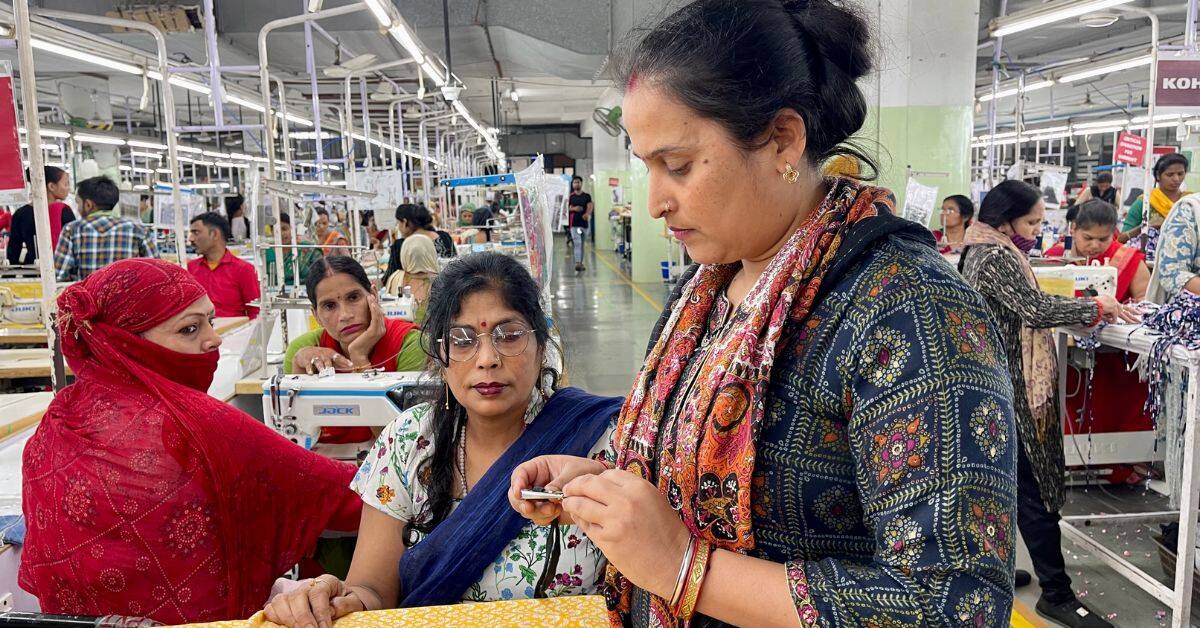
Originally from Pakistan’s Sindh, Sarla Ahuja moved to India’s Rajasthan during the Partition. Married at the age of 16, Sarla did not like spending her days managing household chores from cooking to cleaning home.
While she could only study till Class 10, she remembered the stitching work her mother had taught her. At the age of 18, she decided to supplement her family’s income by working as a sewing machine operator in the neighbourhood. But within a few months, she had to quit the job to look after her children.
It took Sarla two years to save and eventually begin what is today among India’s largest apparel manufacturers — Shahi Exports. She established the venture with Rs 5,000 in 1974 with her first unit in Delhi. Today, she works directly with importers in the US, and her products include denim, twill bottoms, soft wovens, and knitwear. Shahi Exports clocks an annual revenue of Rs 8,000 crore.
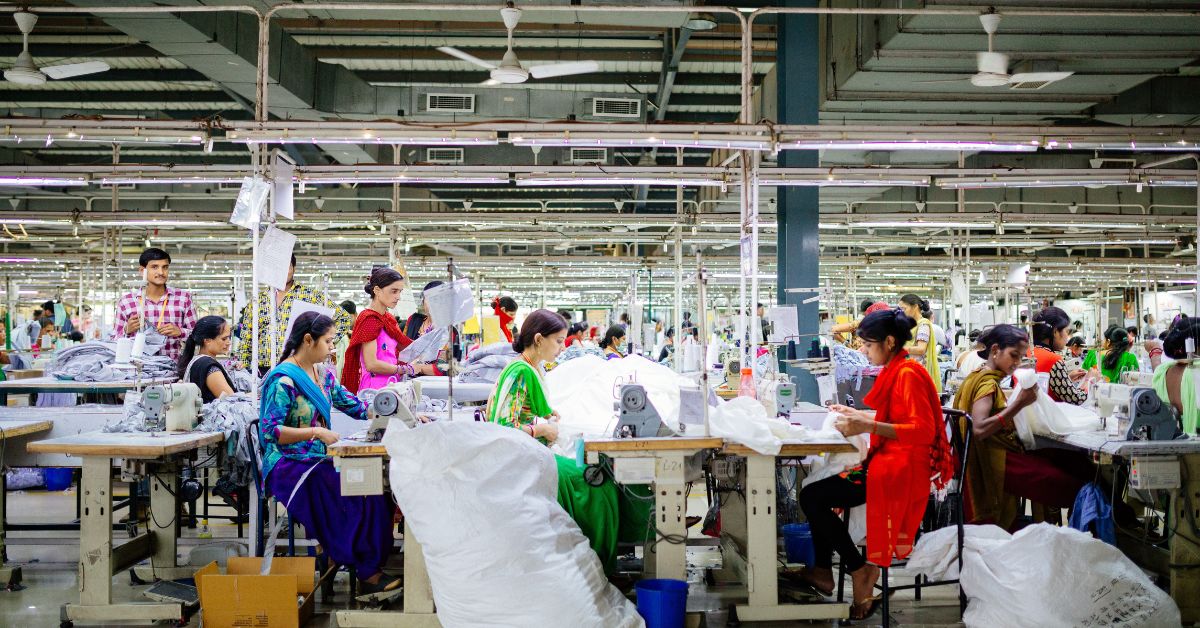
Sarla is the first woman entrepreneur in her family to set up the business. In conversation with The Better India, the 87-year-old says, “I was quite young when I started the business. I saw how other women are earning with this work, and I thought, ‘Why not give it a try?’. My father would be happy to see me work and would proudly tell his friends about my export business.”
Over the years, Sarla has set up 51 factories across eight Indian states including Haryana and Karnataka. Her company works with large retailers across the world, from Nike to Walmart, H&M and Zara, in North America, Europe, and Australia.
Thousands of women empowered
Initially, Sarla would encourage women in the neighbourhood to work and earn livelihood, which would not only help them meet household expenses, but also earn dignity.
“Earlier, these women would do nothing except household chores all day. They were from low-income groups and would live in small settlements. I helped them learn turpai (hemming) and stitching. I asked them to work for at least a week to get an idea how it feels to earn income. They started enjoying the work and would be happy to buy books for their children, getting them enrolled in schools, but their families did not like this,” says Sarla.
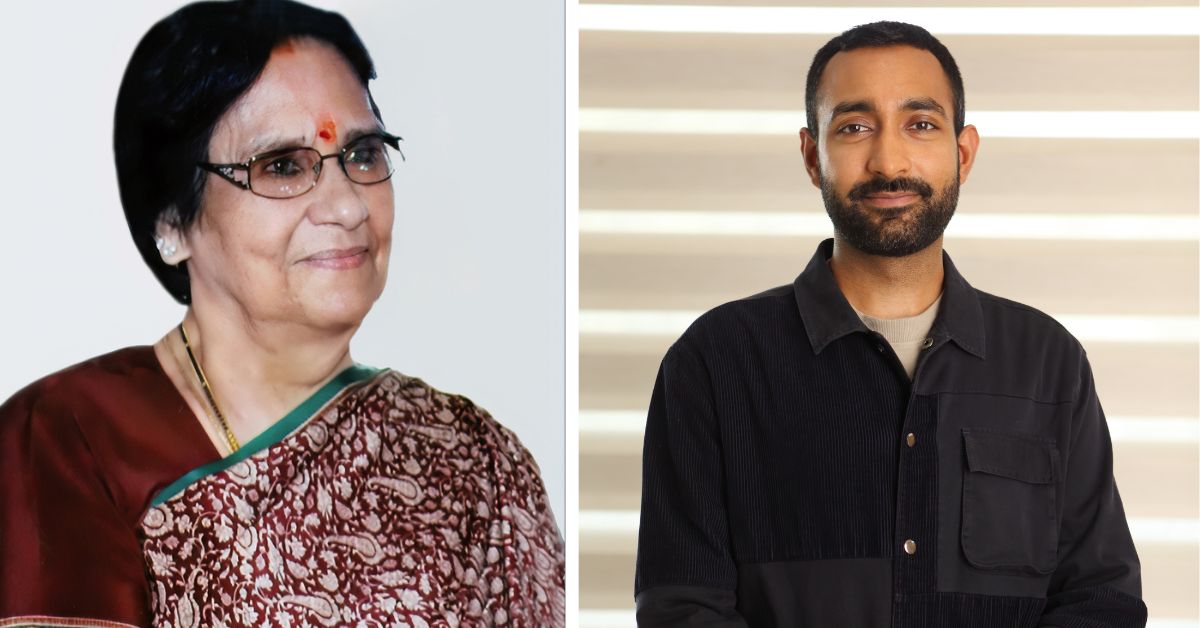
Back then, a majority of men were not pleased to send their wives or daughters to work. Sarla felt that empowering women was important because there was joy in fending for themselves through financial independence. “I wanted them to come out of that atmosphere,” she adds.
Started with 10 women employees, today her company employs more than 1 lakh workers, of which 70 percent workforce comprise women.
When women take charge
These women are also supported through various programmes and initiatives such as financial literacy. In 2007, she started a programme — Personal Advancement and Career Enhancement (PACE) — to teach soft skills such as effective communication, time management, problem-solving, and decision-making.
“While they tend to be generalised skills, we have seen ways in which training women in such skills has made them more effective at work. It also helps increase workplace outcomes such as better attendance, better attention, and better productivity,” Anant Ahuja, Sarla’s grandson, who joined the business a decade back tells The Better India.
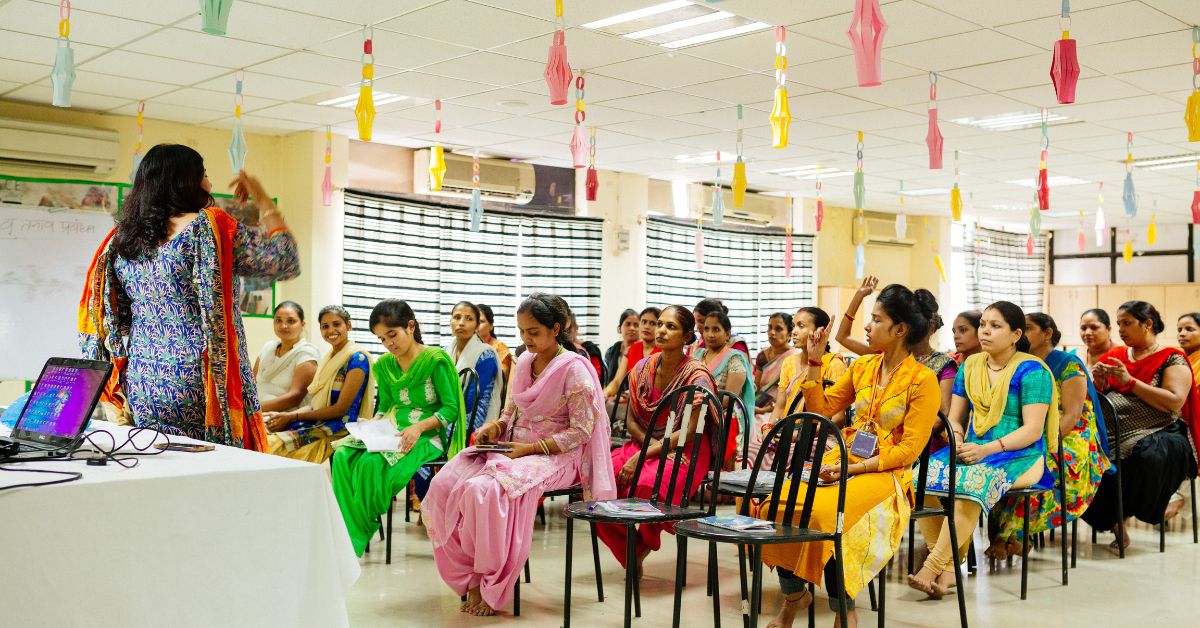
“A majority of our workers come from low-income backgrounds. These women often lack access to formal training and education, preventing them from progressing both personally and professionally. We teach them about savings, reproductive health, family planning, and understanding menstrual hygiene, for which many would use fabric scraps. These issues may be personal, but also affect work. The programme allows these women to unlock their true potential and fulfill their dreams,” he adds.
For instance, Kalyani Pandey, who has been working with the company for the past 16 years, appreciates the support she gets from the team. “This is my first job here. But when I was pregnant with my first child, I had resigned. Sarla ma’am personally called me and enquired about my decision. She asked me to rejoin whenever I felt better and advised me to bring my child and leave him in the company’s crèche. After six months, I rejoined. I felt happy that I could bring my child to work,” the 33-year-old tells The Better India.
Kalyani was also trained under the company’s PACE programme. “We enjoy learning about soft skills. “It helps us improve and we learn about managing finances. I could buy a home with my earnings and set up a small clothing business. While I go to work, my husband runs the company and looks after our children. He even cooks me tea and food. He helps me at home, so I help him in running the business,” she says.
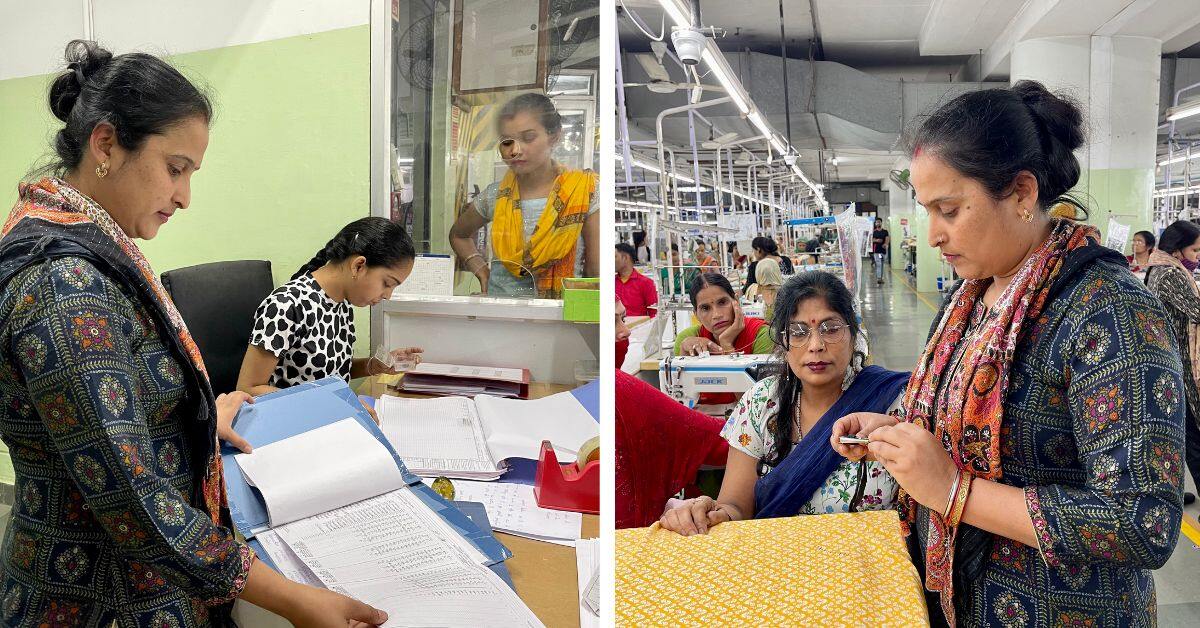
For Kalyani, Shahi is more than just a workplace. Last year, when she got sick after a uterus infection, her colleagues donated her blood. “Shahi gave me a paid leave for three months. Many people appreciate me for working in a company like Shahi,” she adds.
Setting the foundation for a women-friendly workplace is Sarla, who once had to quit her first job to look after children. Although she retired from work nearly five years back due to ill-health and handed over responsibility to children and grandchildren, she keeps herself updated with the company’s growth and ensures payments are released on time. If you found our stories insightful, informative, or even just enjoyable, we invite you to consider making a voluntary payment to support the work we do at The Better India. Your contribution helps us continue producing quality content that educates, inspires, and drives positive change. Choose one of the payment options below for your contribution- By paying for the stories you value, you directly contribute to sustaining our efforts focused on making a difference in the world. Together, let’s ensure that impactful stories continue to be told and shared, enriching lives and communities alike. Thank you for your support. Here are some frequently asked questions you might find helpful to know why you are contributing?

While signing off, she gave a piece of advice to emerging women entrepreneurs: “Be good to your workers. Help them fix their issues whenever they are in need.”
Edited by Divya Sethu.
This story made me
- 97
- 121
- 89
- 167












